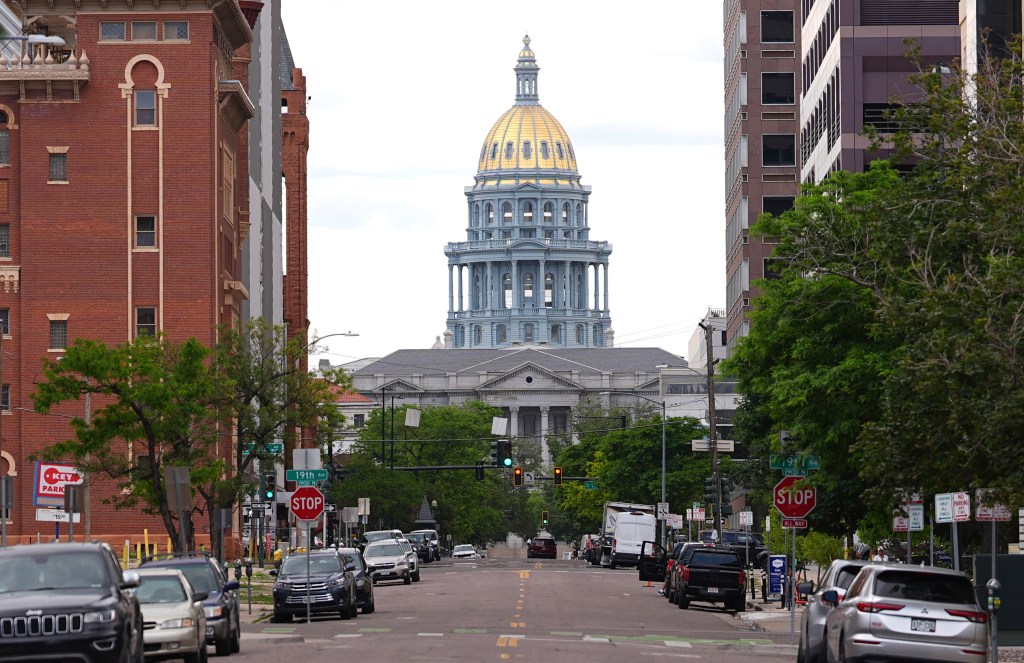Coloradans still aren’t happy about the state’s cost of living, but told pollsters they’re even more concerned about politics — and feel relatively powerless to do anything about it.
About 32% of people who responded to the annual Pulse poll, commissioned by the Colorado Health Foundation, said government and politics were the biggest challenge facing the state.
That was more than twice the share who named the general cost of living or inflation (13%), and three times the share who worried most about housing affordability (10%).
Last year, respondents listed the cost of living as the biggest challenge, followed by the cost of housing, government and politics, immigration and homelessness.
The poll doesn’t suggest that people felt better about pocketbook issues, however.
More than 80% said the general cost of living and the cost of housing were “extremely serious” or “very serious” problems in Colorado. About three-quarters said the same about the cost of health care and homelessness. The share of people rating those problems as extremely or very serious was similar to last year.
The increasing concern about politics may reflect a sense that people in power aren’t doing enough to fix the state’s biggest problems, said Katie Peshek, senior communications officer for the Colorado Health Foundation.
This year’s poll, conducted in April and May, was the first to find that government was the top concern since they started surveying Coloradans in 2020.
“Many of these things, I think people are feeling frustrated,” she said. “Government and politics has always been there (on the list of concerns), but midway in the pack.”
When asked for more detail, about three in five of those who named government and politics as the state’s biggest challenge were critical of Republicans, close to three in 10 were critical of Democrats and one in eight said they were worried about polarization in general, or some other aspect of government.
In previous years, most of the people who listed government and politics as the biggest problem were conservatives upset with the legislature and the Polis administration, said Lori Weigel, principal of New Bridge Strategy, which works with Republicans.
This year, an increasing share of liberals who don’t like the Trump administration’s actions listed politics as the top challenge, she said. The foundation contracted with one firm aligned with each of the two major parties.
“I think that is what boosted those concerns,” she said.
Respondents weren’t optimistic about their ability to solve problems through public engagement.
When asked to rank seven ways of participating based on how effective they would be, only one came out above the midway point: volunteering with organizations working on causes they cared about, which averaged 4.7 on a scale of one to seven. Expressing opinions on social media landed at the bottom, with an average score of 3.1. Voting wasn’t on the list of actions, because not all of the respondents are registered, Weigel said.
The perceived lack of agency isn’t surprising, Weigel said. The feeling that politicians are more interested in what donors or special interest groups want than in ordinary voters isn’t new, though it has grown in recent years, she said.
“Trust in government and trust in political institutions has eroded over time,” she said.
Part of the reason people feel they can’t make a difference is that the problems are genuinely big and complex, Peshek said. But polarization is another factor, since grassroots groups report more successful engagement on local, relatively nonpartisan issues, she said.
“We need to find new and innovative ways to make people feel closer to government and feel their voices are heard,” she said. “We must find a way for parties to work together.”
Get more Colorado news by signing up for our daily Your Morning Dozen email newsletter.
